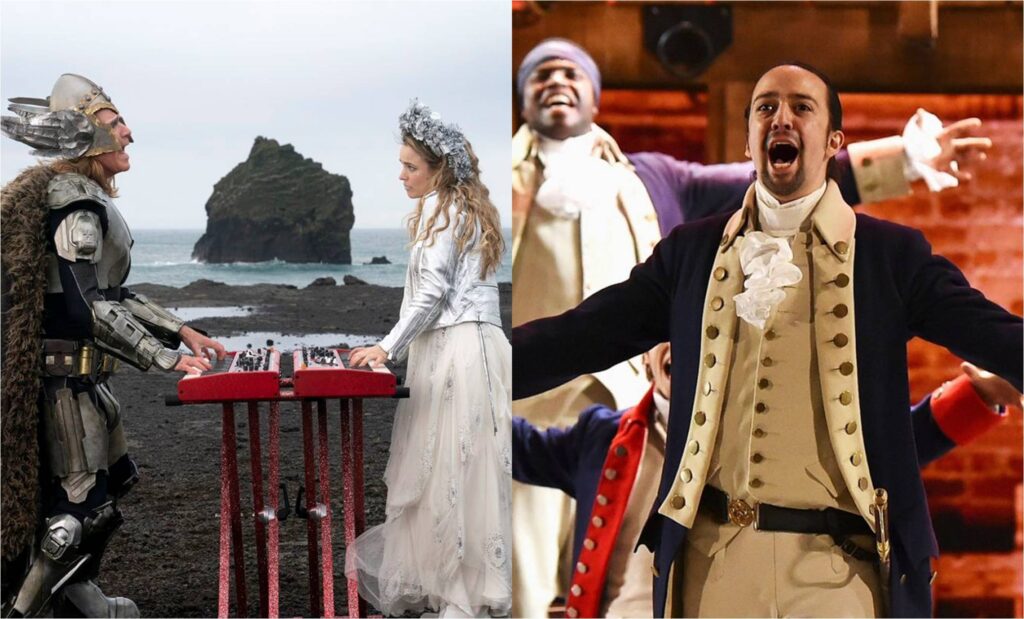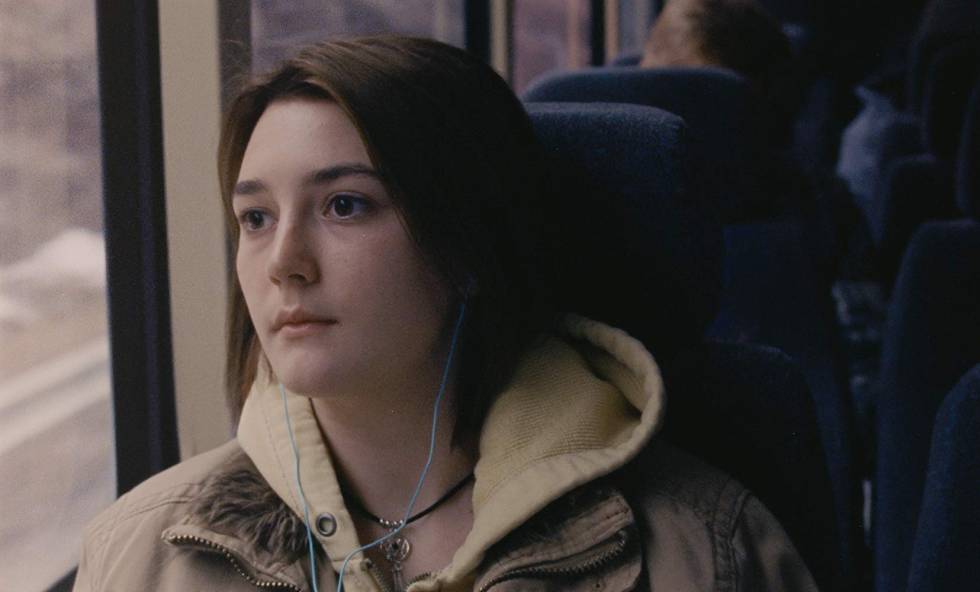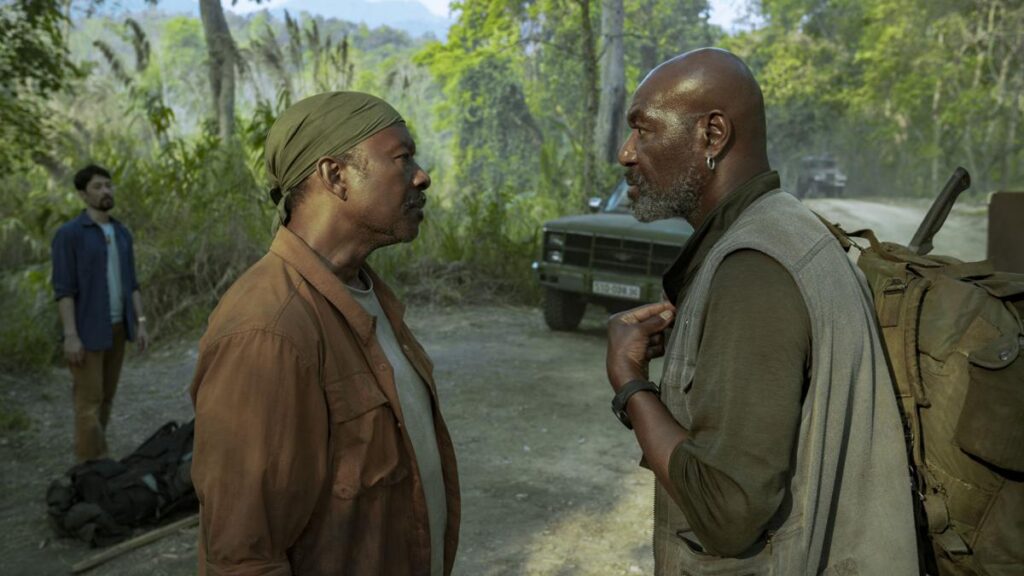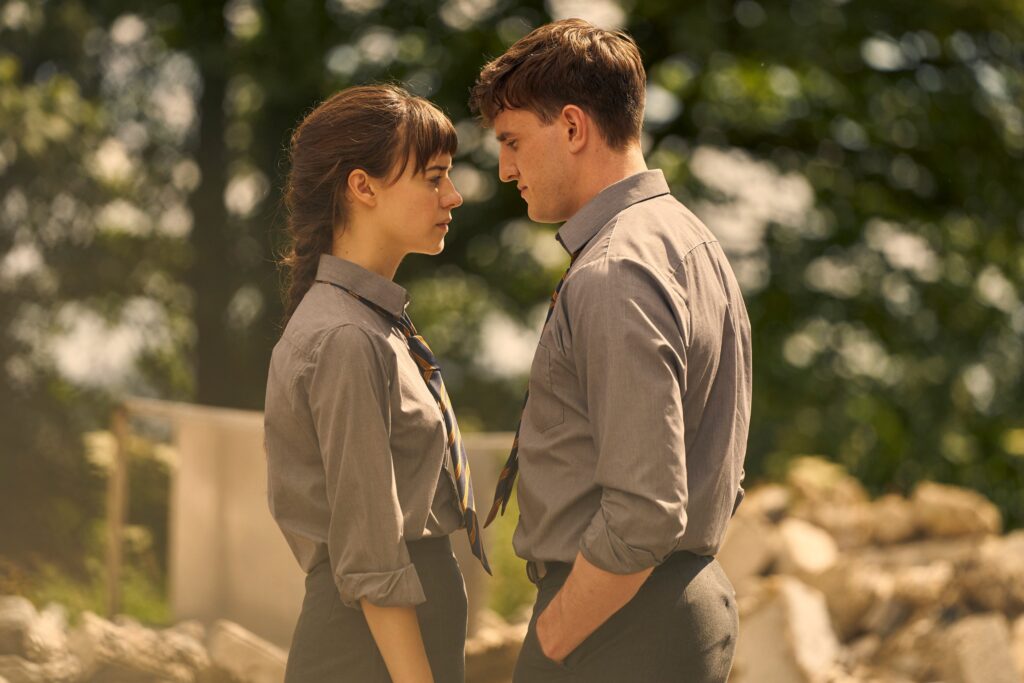Hamilton, Eurovision Song Contest, and the Strangeness of the Movie Musical

No movie is literally realistic. People’s actual lives are not filmed by professional camera crews, nor are their conversations scripted. Even adherents of Dogme 95 accept a certain degree of manipulation when they watch movies; it’s the implicit contract between the artist and the viewer. Still, if any genre challenges the assumptions inherent in this contract, it’s the musical. Our preconditioned brains may not immediately perceive that most cinematic dialogue is far more polished than everyday speech, but we damn sure notice when characters suddenly break into song.
It’s this theatricality, I assume, which animates the canard that musicals are unrealistic. Of course they’re unrealistic… and so is every other movie you’ve ever seen. The best musicals—my own list would include A Star Is Born (1954), The Umbrellas of Cherbourg, Aladdin, and, yes, La La Land—lean into their heightened stature, using song and dance to emphasize their characters’ emotions; in the process, they turn artifice into art. Nevertheless, it’s fascinating to consider the two most recent musicals to arrive in American theaters on streaming networks, and how they relate to the genre at large. Netflix’s Eurovision Song Contest: The Story of Fire Saga, the new vehicle for Will Ferrell’s outlandish shenanigans, and Disney’s Hamilton, the not-so-new phenomenon that you surely don’t need me to describe, are decidedly different movies—not just in terms of tone, but in how they depict music being performed on screen. Read More




